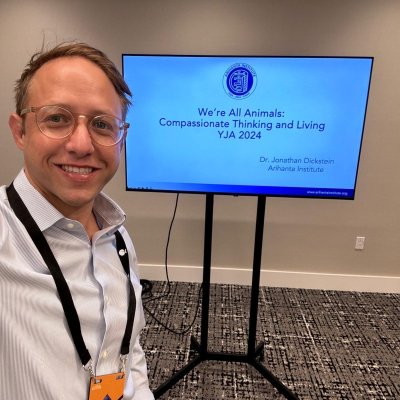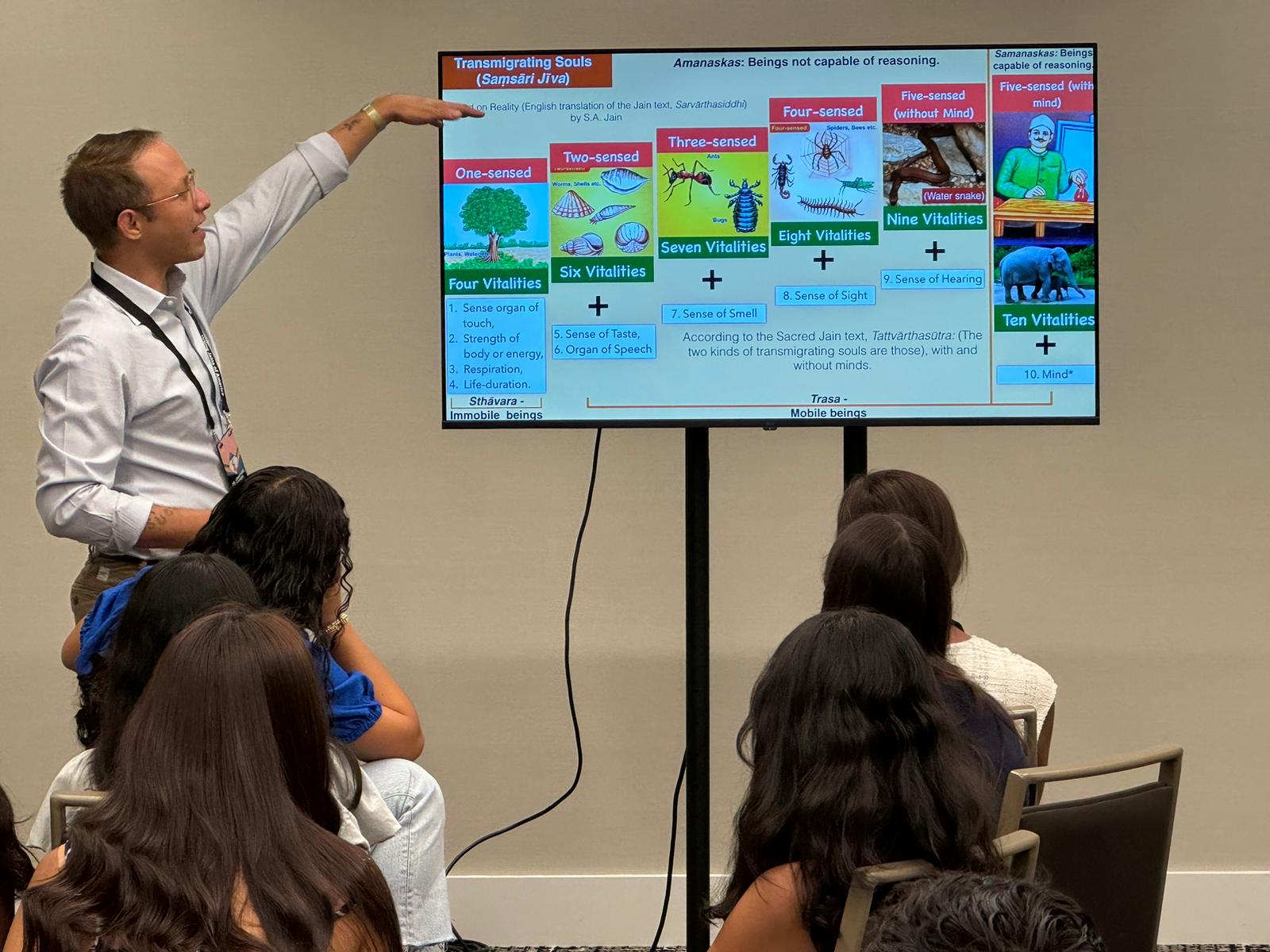Young Jains of America Convention 2024: Reflections of a First-Timer

Young Jains of America Convention 2024: Reflections of a First-Timer
My last post on “The Jain Diaspora'' shared that approximately 200,000 Jains currently live in the United States and Canada. JAINA, a non-profit organization that connects and represents the 72 Jain centers operating in North America, contains a smaller group dedicated to the Jain population between the ages of 14 and 29. This group, Young Jains of America (YJA), was established in 1991 to provide Jain youth with various means for connection and development. YJA’s mission revolves around instilling Jain values in younger generations and strengthening the community’s bonds, while also supporting its members’ educational, professional, and social pursuits outside of the Jain community.
Alternating with the annual meeting of its parent organization, YJA hosts a biennial national convention that draws nearly a thousand young Jains from across the continent. Impressively, YJA’s conventions are entirely youth-driven, being envisioned, designed, and organized by a committee of about 40 young Jains working tirelessly to secure its success. Between July 4–7, 2024, YJA held its 16th convention in Atlanta, Georgia. Alongside my Arihanta Institute colleague Cogen Bohanec, MA, PhD (Read Dr. Bohanec's reflection on YJA), I attended the convention as one of 50 invited speakers for the daytime programming. It was my first time attending a YJA convention, but fortunately I wasn’t alone. I soon learned that 40% of the young Jains at the convention were also attending for the first time.
Nothing was more palpable and pervasive at the YJA gathering than the energy coursing through the hallways and meeting spaces. From the moment I arrived—checking in, registering, and acquiring all the necessary badges, schedules, and other materials—I couldn't not feel the widespread excitement. Young people (and older people) passing in both Indian and Western dress, hugging in the passageways and racing down them, all exuding joy in the present and showing eager anticipation of the activities to come. The mood was absolutely infectious. While it is hard to deny that the vibrant social events constitute the heart of the convention, at least for the younger attendees, there was no lack of interest and engagement in the convention’s daytime sessions. These sessions offered a wide variety of topics in Jain education from physical and mental health advice to personal and professional ethics to Jain spirituality and meditation.
My morning session, titled “We’re All Animals: Compassionate Thinking and Living,” prompted Jain high schoolers to contemplate the relationship between nonviolence and compassion and how these ideas relate—in the real world—to the treatment of animals. What do these terms actually mean? Is nonviolence a feeling or an ethic or both? What about compassion? How do nonviolence and compassion connect to how we perceive and physically interact with animals? These were some of the questions posed to the attendees, who broke up into smaller groups to couple their thoughts with examples from their individual lives back home.

The afternoon session, “Walking the Walk: Living Shared Jain Values,” was geared toward the “22+” demographic standing on the cusp of new and exciting educational and professional endeavors. Participants relayed the challenge of adhering to the core Jain values of ahiṃsā (nonviolence) and aparigraha (non-possessiveness) while embarking on futures in finance, clinical research, engineering, and other fields. This tension found some relief in the third core Jain value of anekāntavāda (non-one-sidedness), which attendees viewed as a tool to respectfully receive the alternative worldviews of their classmates and colleagues. Participants also cited anekāntavāda as evidence that Jainism acknowledges the unavoidable complexities of living ethically in the real world.
The Arihanta Institute booth was very busy, with Kamlesh Mehta, Arpit Mehta, Cogen, and I fielding numerous inquiries about Arihanta’s mission, faculty, classes, and special events. As a scholar who focuses on Jainism and animals, I was pleased that Mercy For Animals (MFA) and New Roots Institute (NRI) also operated booths at the convention. MFA president Leah Garces spoke at the opening evening reception and NRI Executive Director Monica Chen delivered a daytime presentation and interfaced with many young Jains from behind the NRI table. Overall, it was inspiring to witness how young Jains instinctively understand the connection between their cultural value of nonviolence and animal rights. Attendees were also very enthusiastic about sharing the details of their vegetarian or vegan lifestyles.

Two main objectives of Arihanta Institute are to democratize Jain Studies and to promote Engaged Jainism. From my own experience at YJA 2024, it is clear that young Jains are eager to learn more about their religious and philosophical heritage and to integrate that knowledge into their daily lives. With its diversity of online learning options and emphasis on enacting Jain values in the material world, Arihanta supports the needs and desires of Jain generations to come.
Jonathan Dickstein, Assistant Professor at Arihanta Institute, completed his PhD in Religious Studies at the University of California-Santa Barbara. He specializes in South Asian Religions, Animals and Religion, and Comparative Ethics. His current work focuses on Jainism and contemporary ecological issues, extending into Critical Animal Studies, Food Studies, and Diaspora Studies.
Join Professor Dickstein's course 1014 | Jainism, Veganism, and Engaged Religion co-taught with Christopher Jain Miller, PhD. 6 hours Self-Study + Live Q&A zoom sessions will take place on June 7, 14, 21, and 28 from 8AM to 9AM Pacific and will be recorded for later viewing.
Check out all Arihanta Institute courses here:
